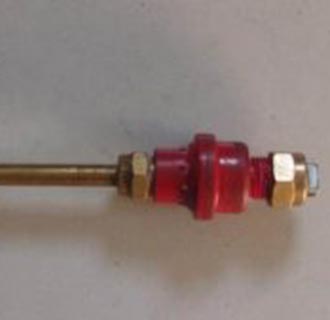
The Control Flow Valve was introduced in the 2016 AIRS Tanzania spray campaign. Credit: AIRS Tanzania
The President’s Malaria Initiative (PMI) has supported indoor residual spraying (IRS) in Zanzibar and mainland Tanzania since 2006 and 2007, respectively. IRS is an effective malaria control strategy which kills malaria-transmitting mosquitoes, thereby drastically reducing the number of mosquitoes that can transmit malaria in the targeted area.
In 2016, the PMI Africa Indoor Residual Spraying (AIRS) Project conducted its first IRS campaign on mainland Tanzania and Zanzibar. An important objective of the spray campaign, in addition to implementing high quality IRS, was to ensure a cost-efficient operation.
The Project introduced, for the first time in Tanzania, the use of control flow valves (CFVs) for the IRS campaign. CFVs have been recommended by the World Health Organization Pesticide Evaluation Scheme since 2006.
The valves are attached at the end of the spray equipment to regulate the flow rate of the insecticide from the sprayer. As well as maintaining the desired flow rate at a constant level, the valve has a cut-off mechanism that stops the flow of insecticide as soon as the pressure in the spray equipment drops below the required level. Without the CFV, an initial overdosing of the spray surface can occur, leading to waste of insecticides. Under-dosing at the end of the spray can also occur without the CFV, which may affect the quality of the spray.
The CFV ensured a high quality of spray and substantially saved costs by reducing the amount of insecticide required to spray a structure. The percentage reduction in achieving the same quality of spray was 8% on mainland Tanzania and 7% in Zanzibar, resulting in more than $350,000 in savings.
The IRS focal person at the National Malaria Control Program, Winfred Mwafongo, said, “Feedback from the operators during our post IRS supervision indicated that CFVs were very useful in assuring uniform spray emission. NMCP recommends the use of CFVs.”
This story was taken from www.africairs.net.
